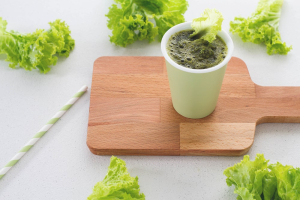Dietary Recommendations for Preventing and Managing Uncomplicated UTIs in Women

Dietary Recommendations for Preventing and Managing Uncomplicated UTIs in Women. Urinary tract infections (UTIs) are a common health concern for women, often causing discomfort, pain and frequent trips to the bathroom.
While antibiotics are the standard treatment for UTIs, dietary changes can play an important role in preventing and managing uncomplicated cases. In this article, we'll explore dietary recommendations that can help women reduce the risk of UTIs and alleviate symptoms when they occur.
Problems with Managing Uncomplicated UTIs in Women
Managing uncomplicated UTIs in women can present several challenges. One common issue is the frequent recurrence of infections, which can lead to antibiotic resistance over time. Misdiagnosis or delayed treatment can also worsen symptoms and increase the risk of complications.
Additionally, some women may experience adverse reactions to antibiotics, such as gastrointestinal discomfort or allergic reactions. Identifying the root cause of recurrent UTIs, such as hormonal imbalances or anatomical abnormalities, can be difficult and requires careful medical evaluation.
Lastly, lifestyle factors, such as poor hydration, inadequate hygiene and certain dietary habits, can contribute to the persistence of UTIs, making effective management a multifaceted approach that goes beyond just medical treatment.
Tips for Preventing and Managing Uncomplicated UTIs in Women
Preventing and managing uncomplicated UTIs in women requires a combination of lifestyle adjustments and dietary modifications. By staying hydrated, incorporating cranberry products and maintaining good personal hygiene, women can reduce their risk of UTIs and alleviate symptoms when they occur.
This section provides practical tips and recommendations to help women take proactive steps in preventing and managing this common health concern.
Stay Hydrated
Drinking plenty of fluids, especially water, is essential in preventing UTIs. Water helps flush bacteria from the urinary tract, reducing the risk of infection. Aim for at least eight 8-ounce glasses of water daily and increase your intake if you're active or in a hot climate.
Cranberry Juice and Supplements
Cranberries contain compounds called proanthocyanidins that can prevent bacteria from adhering to the bladder walls. While cranberry juice is popular for UTI prevention, it's essential to choose a variety low in sugar or opt for unsweetened cranberry juice. Cranberry supplements are also available and may be a more convenient option for some women.
Increase Vitamin C Intake
Vitamin C can acidify urine, creating an inhospitable environment for bacteria. Incorporate vitamin C-rich foods into your diet, such as oranges, grapefruits, strawberries and kiwi. You can also consider taking a vitamin C supplement as advised by your healthcare provider.
Probiotics
Probiotics, particularly those containing Lactobacillus strains, can help maintain a healthy balance of bacteria in the body, potentially reducing the risk of UTIs. Incorporate probiotic-rich foods like yoghurt, kefir and fermented vegetables into your diet or consider taking a probiotic supplement.
Avoid Irritants
Certain foods and beverages can irritate the bladder and exacerbate UTI symptoms. These include caffeinated drinks, alcohol, spicy foods and artificial sweeteners. If you're prone to UTIs or currently experiencing one, it's best to limit or avoid these irritants.
Choose Whole Grains
Whole grains, such as brown rice, quinoa and whole wheat, can help support a healthy digestive system, which is important for overall health and infection prevention. These grains are high in fibre, which can aid in preventing constipation, a risk factor for UTIs.
Limit Sugar and Processed Foods
A diet high in sugar and processed foods can promote the growth of harmful bacteria in the urinary tract. Try to limit your intake of sugary snacks, drinks and processed foods, opting instead for whole, nutrient-dense options.
Stay Alkaline
An alkaline diet can help balance the body's pH levels, potentially reducing the risk of UTIs. Focus on incorporating alkaline-forming foods like fruits, vegetables, nuts and seeds, while reducing acidic foods like meat, dairy and processed grains.
Herbal Remedies
Certain herbs, such as uva ursi and dandelion, have been traditionally used to support urinary tract health. However, it's essential to consult with a healthcare provider before using herbal remedies, as they may interact with medications or have side effects.
Monitor Your Fluid Intake
While staying hydrated is important, it's also important to monitor your fluid intake throughout the day. Aim to drink fluids consistently rather than consuming large amounts at once, as this can help maintain a steady flow of urine and reduce the risk of bacteria buildup.
Personal Hygiene
Although not directly related to diet, maintaining good personal hygiene is essential in preventing UTIs. Always wipe from front to back after using the bathroom, urinate before and after sexual activity and choose breathable, cotton underwear to reduce moisture and bacteria growth.
Get UTI Treatment with Pharmacy First at Pearl Chemist Group
Dietary changes can significantly impact the prevention and management of uncomplicated UTIs in women. Staying hydrated, incorporating cranberry products, increasing vitamin C intake and avoiding irritants are key strategies. Additionally, maintaining a balanced diet with whole grains, probiotics and limited sugar can support overall urinary tract health.
Take control of your health without the need for a GP visit
Get UTI treatment in all of our branches including the ones in Morden, Streatham, Tolworth, Wandsworth and Tooting. Get expert consultation and personalised care right in your neighbourhood. Visit our website or contact us today to learn more about how we can assist you with your urinary tract health needs.






